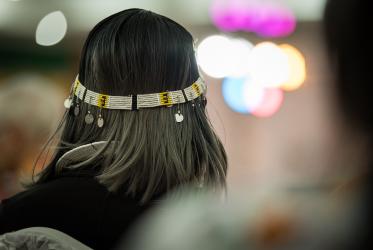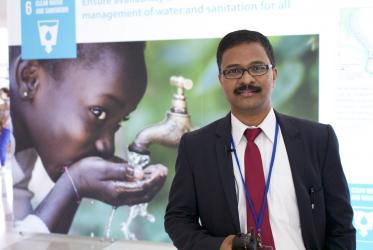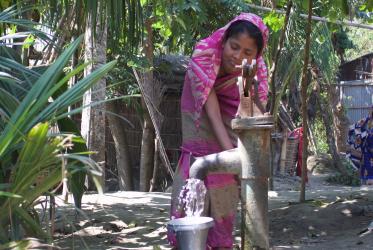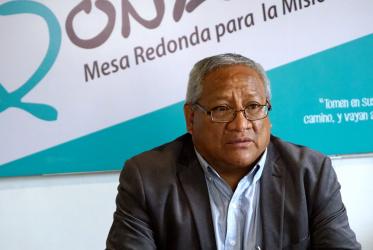Displaying 61 - 80 of 194
07 August 2020
New WCC “Eco Ambassadors” pledge to protect our ecology
06 January 2020
Eco-School promotes blue communities, green churches
19 November 2019
WCC Eco-School begins in Thailand
07 November 2019
WCC represented at G20 Interfaith forum in Tokyo
13 June 2019










